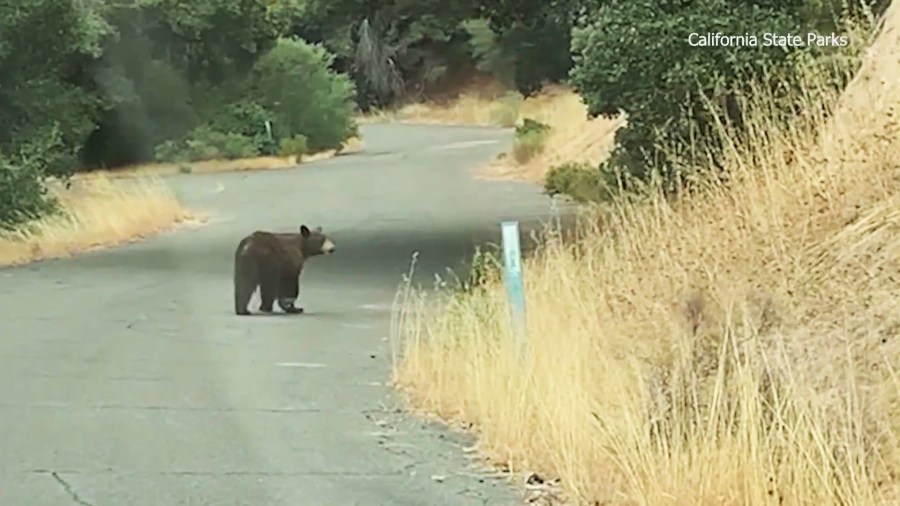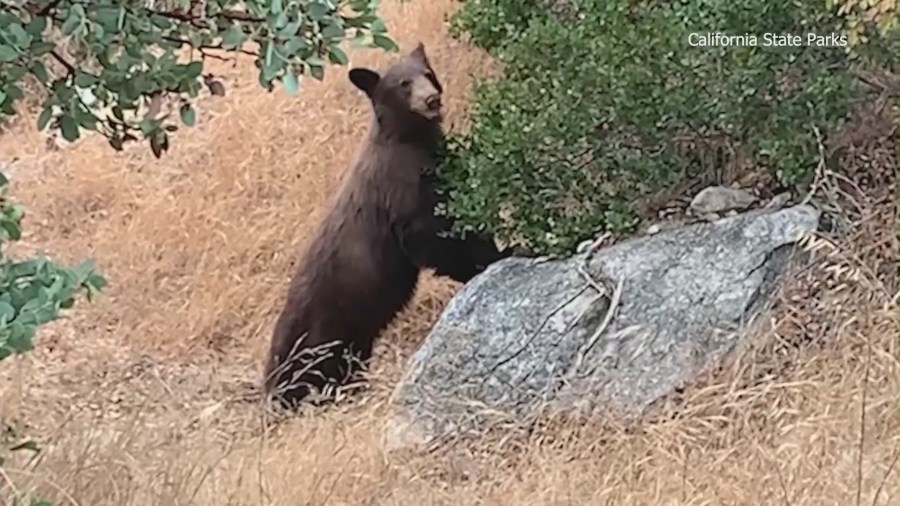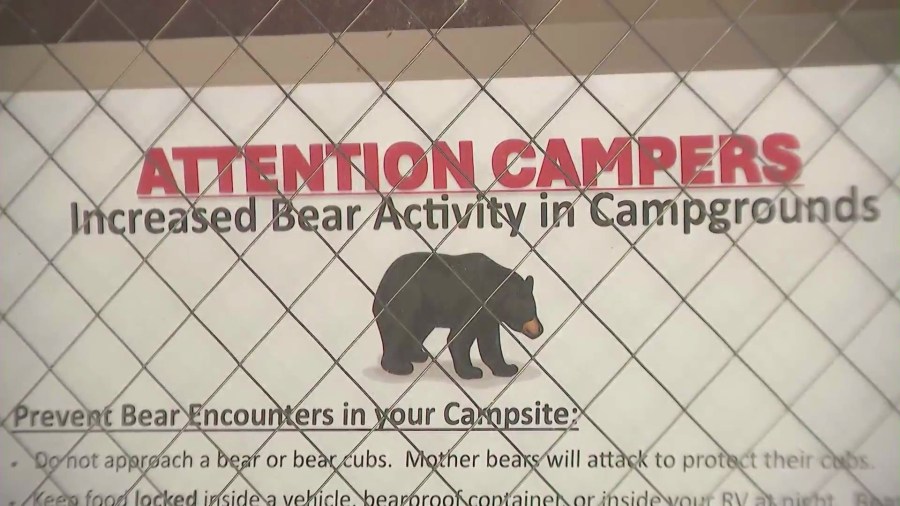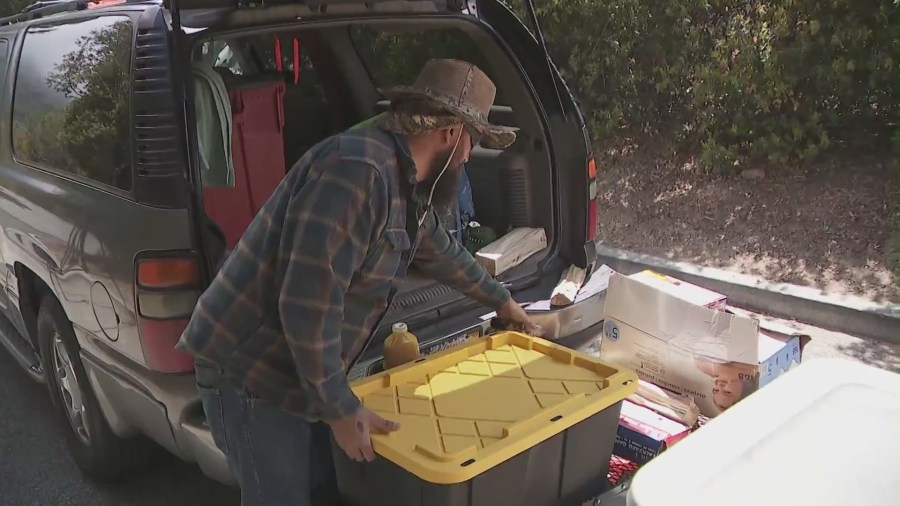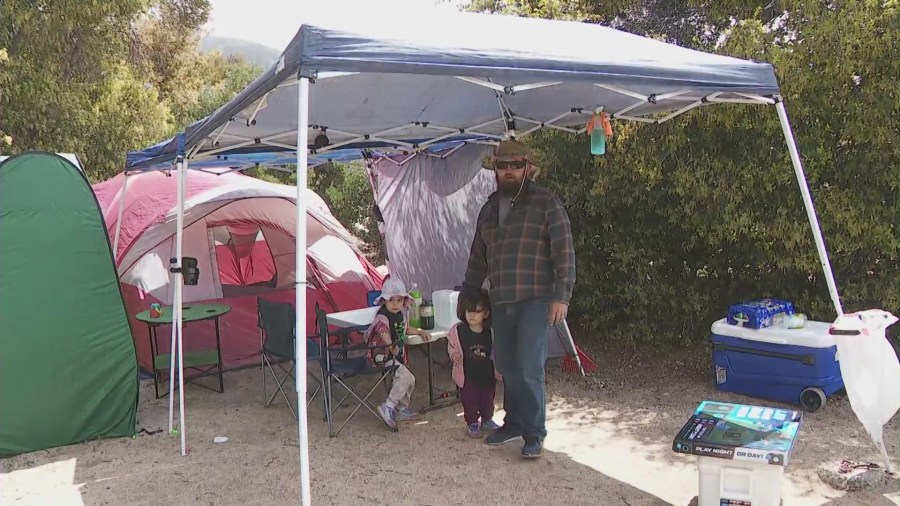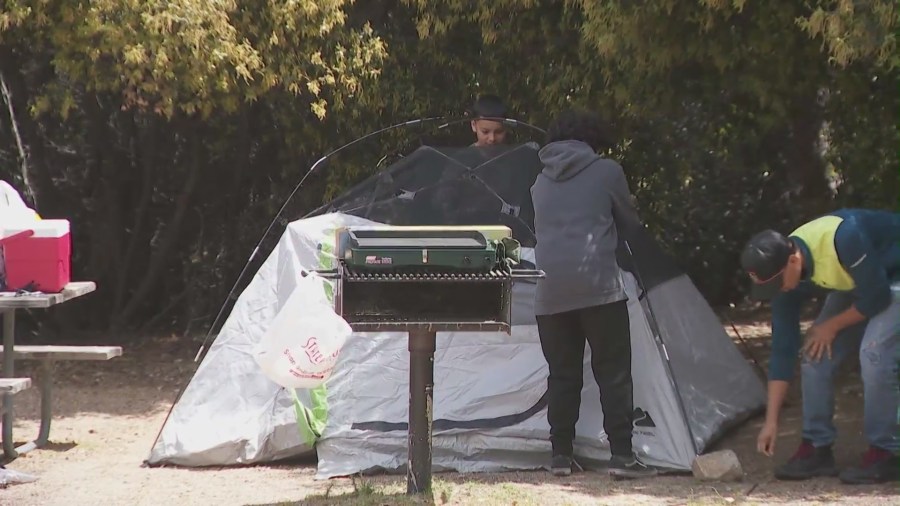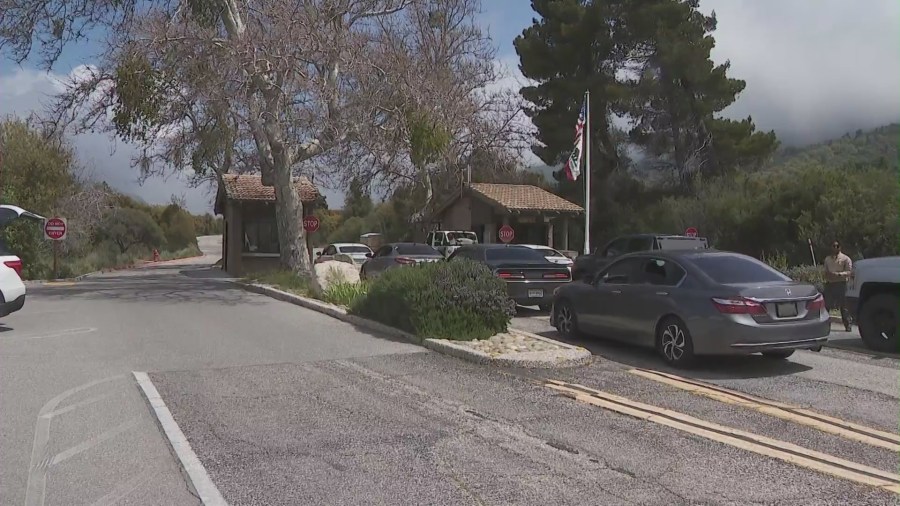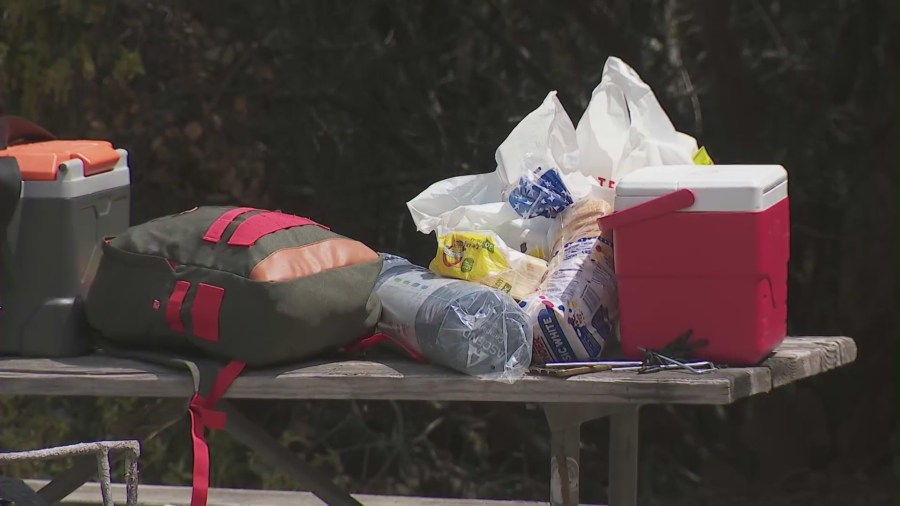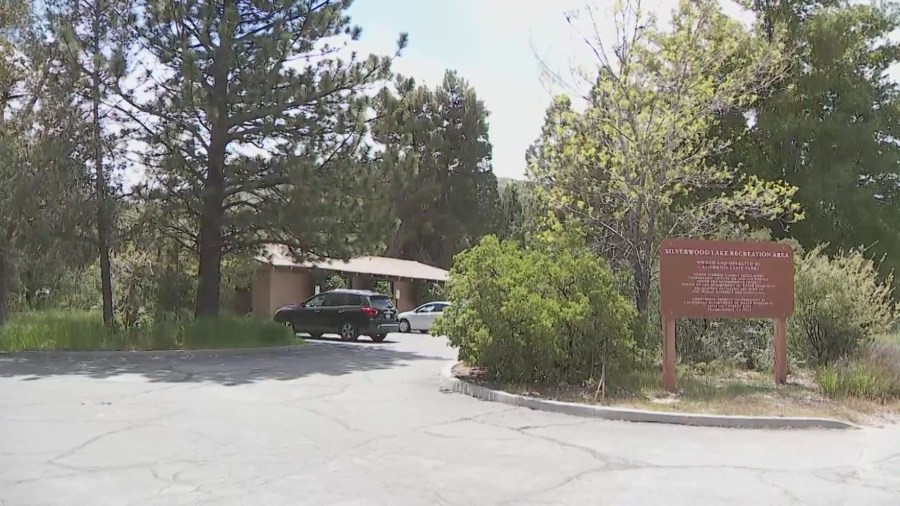An increase in bear sightings at San Bernardino County campgrounds has prompted an alert from park officials, warning visitors to be on the lookout.
“We have about 140 campsites plus six large group campsites and they’re basically full every weekend starting now so it’s very popular,” said Ryann Gill, California State Park Superintendent of Silverwood Lake.
As the weather warms up, more people will begin heading outdoors to enjoy activities at Silverwood Lake. Following the cold winter months, however, this is also when bears emerge from hibernation and sightings will be on the rise.
“Bear activity isn’t uncommon at Silverwood,” Gill said. “We do have bear activity here, however, for the last three weeks, I would say we’ve had increasing instances of at least one bear entering our campsites.”
Recently, however, bear sightings were reported at the New Mesa and Old Mesa campgrounds, areas where Gill said bears are not typically seen.
A La Verne resident named Jerry said he visits the area often and was a few campgrounds away when a hungry bear was scavenging for food last weekend.
“They said a bear ate all the meat in their cooler and the Mexican candy so we got some giggles out of it,” Jerry said. “Nobody was hurt, though. Nothing like that.”
The bear sighting was not enough to deter Jerry from returning to the campgrounds. He said he will depend on his dog to alert him if any bears or wildlife are spotted nearby.
Another camper, Jose Cornejo, has traveled from Norwalk to the Silverwood Lake campgrounds with his wife and three young children. He was surprised to hear of bear sightings in the area.
“It’s quite surprising,” Cornejo said. “This is our third year here and we’ve seen deer, rabbits and frogs, but have never heard anything about a bear being around here.”
Park workers are handing out flyers to visitors, warning them of potential run-ins with bears. They’re reminding visitors to clean up all food and trash and to ensure any leftover food is stored safely inside their vehicles, especially overnight.
The campgrounds are not outfitted with bear-proof trash cans which is something park officials said they may incorporate if bear activity continues increasing.
Most importantly, if anyone encounters a bear, park officials said it’s important to know how to keep yourself and your loved ones safe.
“If a bear comes into your campsite, make yourself look big,” Gill advised. “Wave your arms.”
“I’m going to try to do whatever I can,” Cornejo said. “Throw something at it, try to scare them away as much as possible.”
The Silverwood Lake campgrounds are not outfitted with bear-proof trash cans which is something park officials said they may incorporate if bear sightings continue increasing.
The National Park Service offers these tips to stay safe when spotting a bear:
- Identify yourself by talking calmly so the bear knows you are a human and not a prey animal. Remain still; stand your ground but slowly wave your arms. Help the bear recognize you as a human. It may come closer or stand on its hind legs to get a better look or smell. A standing bear is usually curious, not threatening.
- Stay calm and remember that most bears do not want to attack you; they usually just want to be left alone. Bears may bluff their way out of an encounter by charging and then turning away at the last second. Bears may also react defensively by woofing, yawning, salivating, growling, snapping their jaws, and laying their ears back. Continue to talk to the bear in low tones; this will help you stay calmer, and it won’t be threatening to the bear. A scream or sudden movement may trigger an attack. Never imitate bear sounds or make a high-pitched squeal.
- Pick up small children immediately. Do not make any loud noises or screams—the bear may think it’s the sound of a prey animal. Slowly wave your arms above your head and tell the bear to back off. Do NOT run or make any sudden movements. Do not make any loud noises or screams—the bear may think it’s the sound of a prey animal.
- Hike and travel in groups. Groups of people are usually noisier and smellier than a single person. Therefore, bears often become aware of groups of people at greater distances, and because of their cumulative size, groups are also intimidating to bears.
- Make yourselves look as large as possible (for example, move to higher ground).
- Do NOT allow the bear access to your food. Getting your food will only encourage the bear and make the problem worse for others.
- Do NOT drop your pack as it can provide protection for your back and prevent a bear from accessing your food.
- If the bear is stationary, move away slowly and sideways; this allows you to keep an eye on the bear and avoid tripping. Moving sideways is also non-threatening to bears.
